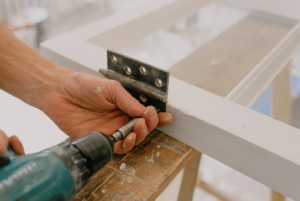Renovating your home can be an exciting and rewarding project. Whether you’re looking to update a single room or give your entire house a makeover, careful planning and execution are key.
1. Set Clear Goals:
Before diving into any renovation project, define your goals. Determine what you want to achieve with the renovation, whether it’s improving functionality, enhancing aesthetics, or increasing the value of your home. Clear goals will guide your decisions throughout the process.
2. Plan Your Budget:
Renovations can quickly become expensive, so it’s crucial to establish a realistic budget. Research costs, obtain quotes from contractors, and allocate funds accordingly. Be sure to include a contingency fund for unexpected expenses that may arise during the renovation.
3. Hire the Right Professionals:
If your renovation requires expertise beyond your skill set, hire professionals who specialize in the specific areas you need help with. Whether it’s an architect, contractor, or interior designer, choose experienced professionals who understand your vision and can bring it to life.
 4. Prioritize Structural and Mechanical Upgrades:
4. Prioritize Structural and Mechanical Upgrades:
Before focusing on cosmetic changes, address any structural or mechanical issues. Ensure that your home’s foundation, electrical systems, plumbing, and HVAC are in good condition. This will prevent future problems and provide a solid foundation for your renovation.
5. Optimize Space:
Make the most of your home’s layout by optimizing space. Consider removing walls to create an open concept, adding storage solutions, or reconfiguring rooms to better suit your needs. Smart space planning can make a significant difference in the functionality and flow of your home.
6. Choose Quality Materials:
Invest in high-quality materials that will stand the test of time. From flooring and countertops to fixtures and appliances, choose durable options that not only look great but also offer longevity. Quality materials will enhance the overall value and appeal of your renovated space.

7. Incorporate Energy-Efficient Features:
Consider incorporating energy-efficient features into your renovation. Install LED lighting, energy-efficient appliances, and insulation to reduce your carbon footprint and save on utility bills. It’s a win-win for both the environment and your wallet.
8. Pay Attention to Lighting:
Lighting can dramatically impact the ambiance and functionality of a space. Incorporate a mix of natural and artificial lighting, including task lighting for specific areas. Choose fixtures that complement your design aesthetic while providing adequate illumination.
9. Don’t Forget About Storage:
Incorporate ample storage solutions to keep your home organized and clutter-free. Consider built-in cabinets, closets, and creative storage options that maximize space. Well-planned storage will enhance the functionality and visual appeal of your renovated home.
10. Stay Flexible and Patient:
Renovations can be time-consuming and unpredictable. Stay flexible and patient throughout the process, as unexpected challenges may arise. Maintain open communication with your contractors and be prepared to make adjustments along the way.
Renovating your home can be a fulfilling endeavor, but it requires careful planning and execution. By setting clear goals, planning your budget, hiring the right professionals, and incorporating these tips, you can transform your home into a space that reflects your style and meets your needs. Embrace the journey, and enjoy the process of creating a beautiful and functional living environment.
